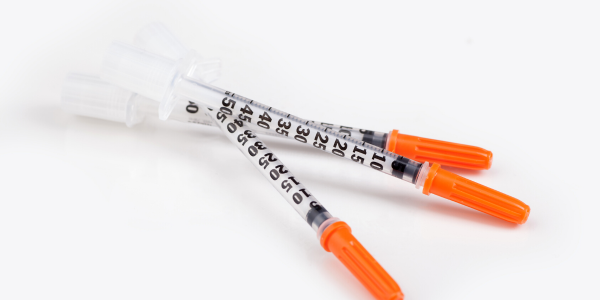
How to Know if You Need Hormone Replacement Therapy
Navigating how to know if you need hormone replacement therapy (HRT) can be daunting — but you don’t have to tackle it alone.
Whether you’re considering HRT for age-related hormonal changes, menopause, or chronic health conditions, it’s important to recognize when your body needs the extra support.
Because your hormones play a vital role in regulating various bodily functions, an imbalance can affect your physical and emotional well-being.
We’ll explore the signs and symptoms that may indicate a need for HRT, and provide resources that can empower you to make informed decisions about your health.

Understanding HRT
Hormones wield incredible power. They’re like tiny messengers, delivering crucial instructions to regulate everything from our mood to our metabolism.
But what happens when these messengers start getting mixed signals? That’s where HRT can step in to restore harmony.
HRT involves the administration of hormones to supplement or replace your body’s natural hormone production. This therapy aims to alleviate symptoms associated with hormonal imbalances in women, such as hot flashes, mood swings, and vaginal dryness, among others.
HRT is commonly prescribed to women experiencing menopausal symptoms or those with hormonal deficiencies.
Common hormones susceptible to imbalance include:
- Estrogen
- Progesterone
- Testosterone
- Pregnenolone
- DHEA
As you learn more about the role hormones play in your body, you can feel empowered to identify your symptoms and advocate for your well-being.
This includes seeking medical evaluation, discussing treatment options with experienced healthcare providers, and making informed decisions about your health.
Next, we’ll address some of the symptoms associated with hormone imbalances, and how to know if you need hormone replacement therapy.
Causes and Symptoms of Hormone Deficiency in Women
Recognizing the signs and symptoms of hormone imbalances is the first step in knowing if you need HRT.
While the most common causes of hormonal deficiencies in women are perimenopause and menopause, many women experience symptoms from alternative causes, such as chronic health conditions, certain medications, and Polycystic Ovarian Syndrome (PCOS) or other ovarian conditions.
If you’re wondering how to know if you need hormone replacement therapy, this next section highlights some key causes of hormonal imbalances in women and their respective symptoms.
Persistent Menopausal Symptoms
Menopause brings about a host of changes due to declining hormone levels, particularly Estrogen and Progesterone.
If you’re experiencing bothersome symptoms like hot flashes, night sweats, mood swings, and sleep disturbances that persist despite lifestyle modifications, it may be time to explore HRT.
Vaginal Dryness and Discomfort
Hormonal fluctuations can lead to vaginal dryness, itching, and discomfort, impacting sexual health and overall quality of life.
HRT, especially in the form of vaginal Estrogen therapy, can target these symptoms and help restore vaginal moisture.
Osteoporosis Risk
As Estrogen levels decline with age, women become more susceptible to osteoporosis, a condition characterized by weakened bones and increased fracture risk.
If you have a family history of osteoporosis or have experienced early menopause, HRT may be recommended to preserve bone density and reduce fracture risk.
Mood Changes and Depression
Hormonal fluctuations can significantly influence your mood and emotional well-being.
If you’re experiencing persistent feelings of sadness, irritability, anxiety, or depression that interfere with daily functioning, HRT may help stabilize mood by restoring hormonal balance.
Cognitive Symptoms
Some women may notice cognitive changes such as difficulty concentrating, memory lapses, or brain fog as they transition through menopause.
Estrogen plays a role in cognitive function, and HRT may help mitigate these symptoms for some individuals.
Loss of Libido
Changes in hormone levels can dampen sexual desire and arousal, impacting intimacy and sexual satisfaction. HRT may help revive libido by restoring your hormonal balance and addressing vaginal dryness.
Lifestyle Factors
Chronic stress may affect the production and balance of various hormones, including cortisol and adrenaline. This can lead to hormonal imbalances and associated symptoms such as fatigue, weight gain, and mood changes.
An optimal balance of nutrition, exercise, and stress management combined with HRT can help reduce your symptoms of hormonal deficiencies.
If any or all of these symptoms seem familiar, you may benefit from adding HRT to your treatment plan for a better, healthier you.

Taking The Next Step Toward HRT
Hormones serve as the body’s messengers, orchestrating various physiological processes essential for optimal functioning. When your hormone levels are out of balance or deficient, it can lead to a cascade of symptoms that affect your everyday life, making everyday tasks more challenging.
At Defy Medical, we understand the complexities of hormone restoration for women and offer comprehensive integrative wellness therapies to address diverse health needs.
Our experienced care team provides personalized attention and guidance via convenient telehealth, ensuring each patient receives tailored care plans designed to optimize their well-being.
Whether it’s restoring hormonal balance, addressing symptoms of menopause, or enhancing overall vitality, our commitment remains unwavering: to deliver compassionate care and support at every step of the way.
Ready to learn more?
Get Started

